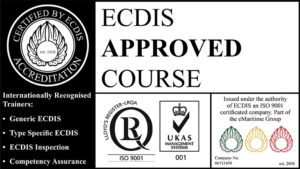Course Description
This course is created for seafarers AND NONE seafarers who work within the maritime industry and would like to have in insight into key knowledge needed for seafarers to do their job onboard vessels. A trainee who has successfully completed the SOTC course will be able to recognise and manage and recognise a variety of simulator maritime navigational equipment in a training environment. The trainee will also be prepared for man-overboard situations and be confident with the emergency checklists used on board, and he/she will recognise the importance of a good challenge and response environment on the bridge, assisting the Simulator instructor in delivering a high quality comprehensive course.
Example Modules
- Role of a Simulator Operator
- Simulation Equipment Management
- Rules Of the Road
- Ship Handling Principles
- Maritime Language
- Traffic Separation Scheme
- Ship Board Emergency Procedures
- Responsibility of a Simulator Operator in Critical Situations
Teaching Methods
The course is split between presentations to familiarise the trainee with the menu structure and practical exercises on the actual ECDIS equipment to cement understanding. We hold a wide range of different manufacturer’s equipment in our facility. There will also be multiple simulation runs throughout the course.
Assessment
Candidates will be assessed throughout the course as well as assessed on the final day to ensure they meet the competency required for the level of training received. Multiple tests followed by a consolidation test will also be used as well as a ‘Demonstrate Simulator Operator Exercise’ assessment on day 5 to check trainee competence in what has been thought during the 5 days.
Prerequisites
Those attending the course should have conducted a generic 5 day IMO 1.27 ECDIS course. They should have experience in performing chartwork and should be able to practice all usual tasks concerning standard navigational procedures and equipment. They should know about the functions and limitations of other navigational equipment. ECDIS is not aiming to teach trainees to navigate using ECDIS. It is teaching them to use ECDIS in order to navigate safely. Therefore, we require the trainee to have the basic navigation knowledge and that they understand what a navigation watch entails. We at ECDIS Ltd are of the opinion that traditional navigation techniques are still relevant in a digital world and as such we will teach the use of existing navigation skills on an ECDIS system.
Class Limitations
Your training is important to us here at ECDIS Ltd and because of that we have ensured there are no minimum booking numbers for any of our type specific courses. All type specific training can be scheduled and conducted for one student. Classes are limited to 2 trainees per terminal in most circumstances. Maximum numbers do apply and vary across different manufacturers – please contact us for further details.
Learner Conditions
The Training Course for Simulator Operators programme is open to all experienced Deck and Engine Officers who are qualified in the technical aspects for which training is to be conducted. In addition to having basic knowledge of computer systems and IMO Regulations, trainees should have also complied with section A-I/6.4.1- 2 of the STCW Code.
ECDIS Ltd welcomes trainees that meet the entry criteria, regardless of background, culture or religion. We advocate that trainees with a variety of different backgrounds, experience, attitudes and values will enhance the course and allows the trainee to contribute to the learning experience. Trainees are therefore encouraged to arrive keen to learn and willing to offer their opinions and experience for the betterment of the course.



